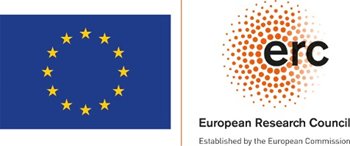Time and place: On Monday 5th of February at 12:15 –14:00 CEST in Room 452 in Georg Morgestiernes Hus and on Zoom (link for virtual participation will be distributed via the Dynamic Territory list; to join the list email anna.wienhues@ifikk.uio.no).
Simo Kyllönen is University Lecturer at the University of Helsinki. His main research topics are related to intergenerational and multispecies justice, democratic theory, and ethics of climate change. He has published on moral responsibility for climate change, population ethics, environmental civil disobedience, and future-regarding democracy. This presentation is part of his current project “Facing Systemic Change Together: Citizen Deliberation in Informed and Just Climate Transitions" funded by Research Council of Finland.
Governing environmental crises – democratic legitimacy and epistemic authority
Urgency and massive spatial and temporal scale of environmental crises have made political theorists sceptical about democracies’ capacity deal with these crises. For these theorists, a sufficient respond requires an authoritarian government that is able to limit democratic processes and rights if these restrain our capacity to tackle the threats. In this paper I argue against these sceptical views. I suggest the appeal of authoritarianism can explained by Joseph Raz’s well-known normal justification thesis (NJT): we are more likely to successfully deal with the environmental threats if we follow authorities’ requirements and take these as authoritative binding rather than trying to deal with the threats by following our own judgement. However, NJT fails to ground sceptics’ authoritarian argument which relies heavily on the idea of effective enforcement. It fails, because the sole instrumental efficacy of authority in tackling environmental threats is insufficient to ground (1) authority’s normative power to make citizens accountable to comply with its requirements, and (2) authority’s permission to enforce (even coercively) its requirements. Legitimacy as permissible enforcement underscores how legitimate political authority is essentially grounded in citizens’ equal political authoritativeness to make valid claims and hold each other accountable. However, since citizens are also accountable for their politically relevant beliefs, democracy can have a sufficient epistemic authority required by the sceptics. I argue that citizens’ epistemic accountability can justify a legitimate democratic authority of environmental governance that is attentive to the relevant environmental evidence, to the interests of future generations, and to the sustainability of non-human nature.

'DynamiTE lunchtime seminars' are a part of the project 'Dynamic Territories'. This project has received funding from the European Research Council (ERC) under the European Union’s Horizon 2020 research and innovation programme (grant agreement No 948964).
